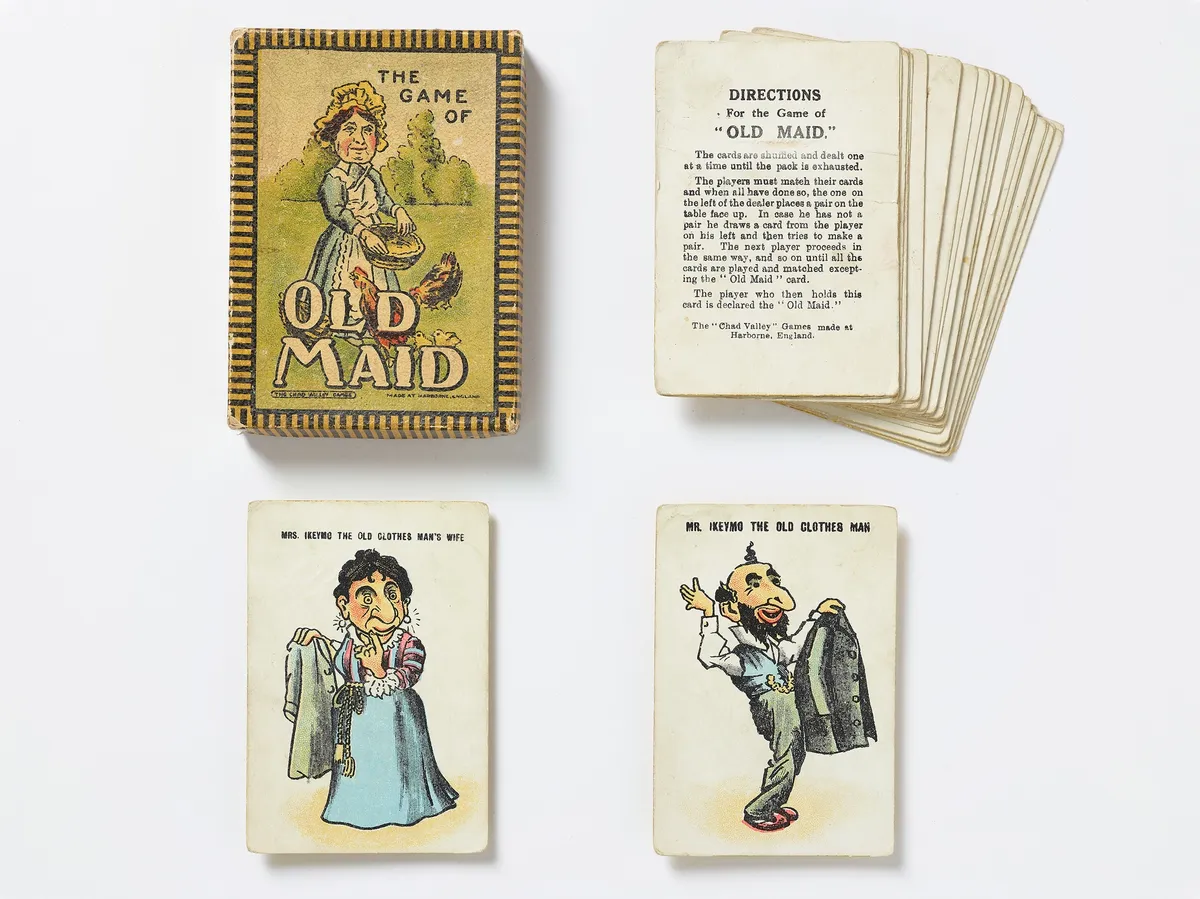News:
Berlin museum acquires vast collection of antisemitic objects amassed by German man who helped Jewish people hide from Nazis
By Catherine Hickley
Wolfgang Haney, who died in 2017, assembled 15,000 postcards, leaflets, photographs and more bearing witness to the persecution of Jewish people

An anti-Semitic version of the card game Old Maid dating from around 1920.
The German Historical Museum in Berlin has acquired a collection of 15,000 objects that bear witness to the history of antisemitism over two centuries in Europe. The purchase of the collection, assembled by the late Wolfgang Haney, ensures it remains intact and is not sold on the open market, the museum said in a statement.
Haney, who was born in 1924 and died in 2017, helped Jewish people to hide from the Nazis during the Holocaust, including his mother, who hid out in a forest east of Berlin from 1943. Because he married a Jewish person, Haney’s father was forced into slave labour. After the Second World War, Haney and his wife, also a Holocaust survivor, visited schools to educate children about the crimes of the Nazis.
In the 1980s, he began collecting postcards, posters, leaflets, coins, newspapers, magazines, documents, stickers, figurines, photographs and films that testify to anti-Jewish sentiment with the express purpose of making them available to museums and archives as educational tools. He invested an estimated €1m in his collection, which includes an array of posters relating to the Dreyfus Affair, the armbands, diaries, passports and drawings of Jewish people imprisoned in concentration camps, and advertising material for the infamous antisemitic Nazi propaganda film Jud Süss (1940).
The collection was shown in a number of museums during his lifetime, including the Jewish museums in Frankfurt and Berlin, the Imperial War Museum in London, and the U.S. Holocaust Museum in Washington. “No museum or archive collected such objects in a comparable way,” says Markus Hilgert, the general secretary of the States’ Cultural Foundation, which contributed €95,000 towards the purchase of the collection.
The German Historical Museum says the origins of some items in the collection raise ethical questions, particularly the personal documents of Holocaust victims. These will be transferred to the Arolsen Archives, an international centre for Nazi persecution originally set up to trace victims.
The collection also includes scraps of Torah scrolls that were plundered from synagogues in eastern Europe and used by German soldiers as packing paper. The German Historical Museum is cooperating with the Jewish Claims Conference to identify these and determine the best course of action. Another research project in cooperation with the Berlin Centre for Antisemitism Research will investigate antisemitic images and figurines.
The collection “will help us and our visitors reach a deeper understanding of how widespread antisemitic views, images and hate propaganda were in Germany and other European countries from the middle of the 19th century,” says Raphael Gross, the director of the German Historical Museum.


